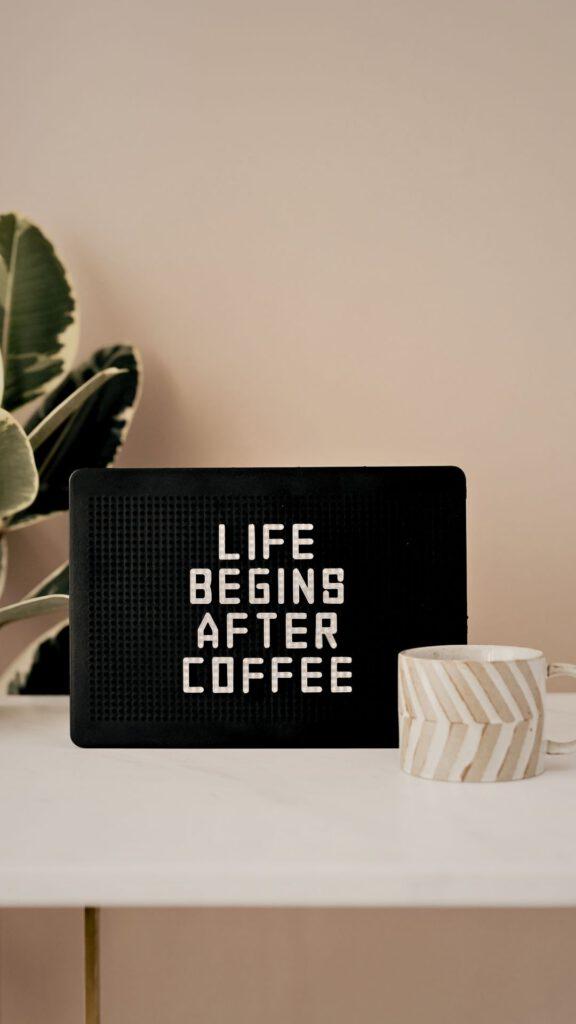Affiliate Disclosure
The Identity
Whether you get up early in the morning or late. Whether you like to eat Chinese or Italian. And whether you are very tidy or your own apartment looks like “under the sofa at Hempel’s”, all this and much more has a decisive influence on your own identity. Most people believe that their own identity determines their own habits. But in fact, it’s the other way around. Habits determine identity.
The Difference
The difference between the two assumptions is life-changing in the truest sense of the word. If you’re one of those people who embrace the former, you’re basically assuming that no matter what you do, your identity doesn’t change. Assuming that, how could you ever believe that you can fundamentally change your life? It would be impossible. But if you assume that your identity is fluid and adapts to your habits through life, then you basically have all the possibilities to develop your life in any desired direction and thus your own identity. Of course, there are proportions that are unchangeable, e.g. ethnicity. But here it should mainly be about the minimum and how you can influence it.
Identity – A Definition
Identity describes how a person perceives himself or herself from his or her origin and development in the context of his or her social environment. In order to understand one’s own identity as confirmed, it must also be recognized and confirmed by other people in social interactions. For this to happen, the social environment usually requires a constant identity from the respective individual. Sometimes even a certain identity, which may even contradict the person in question. This happens every day in countries where women are oppressed, for example. Or even in less dramatic contexts, when the parents try to shape their children intensively.
How important identity really is
The latter, i.e. the strong imprint of the parents, can create serious problems for the children concerned and later adults. These people often feel “wrong”, do not know who they really are, what they actually like, where their talents lie, etc. For some, identity work is therefore more important in personality development than one might think. But even if you had the freedom to express yourself and the search for identity was not suppressed during childhood, it can be worthwhile to reflect regularly and consider whether you are the person you want to be. And whether you live the life you want. Thus, according to Erikson (1968), the search for identity was a central task of adolescents. Grotevant (1987), on the other hand, considered finding identity to be a lifelong task.
Parts of identity
The development of one’s own identity includes, among other things, aspects such as our individual interests and thus the special knowledge that one accumulates. But also the development of friendships and the social circles in which one moves. I would also include self-care there. How do you eat, do you smoke or not, do you exercise regularly and take care of yourself, or not. All of these are big factors, especially in the long run. Later, the choice of profession becomes decisive and the educational path we have taken before. It is easy to imagine how big the difference in identity can be between a person who was able to develop completely freely and live out his own identity and a person who was never allowed to decide anything for himself during his growing up. Who was not allowed to have her own opinion, or at least that it was not accepted by her parents. I constantly experience that parents try to influence and control their children, some of whom are already adults.
So this is absolutely not uncommon. I therefore think it is very important that we look at ourselves and our habits and realize when aspects of our identity and our habits may even harm us or possibly others, or at least do not help us to get ahead in life. What values are really mine? Which parts of my self-definition were perhaps an external imprint and do not correspond to my perceived “I” at all? How often do we adopt behaviors from our environment without questioning it or even consciously perceiving it? At some point, we may even accidentally realize that we sound like our own mother and we don’t always think that’s a good thing.
Intentional self-development
Intentionae self-development is based on the assumption that people can actively contribute to shaping their development and thus their identity. One’s own goals and life plans can have a decisive influence on further development. A person is the object and creator of his development. It forms itself and its actions through regular action and will. In the best case, she can be satisfied with the result, i.e. her own identity.
The connection to the daily routine
Everything you do or don’t do has an impact on your identity. This also applies to what you want or don’t want. And these are all factors that we can influence on a day-to-day basis. Also, we are usually not aware of the consequences that supposedly small, unimportant actions entail. This includes, for example, watching TV every day, instead of perhaps reading a book or pursuing a hobby. Or to smoke and consume alcohol regularly.
Result
I regularly look at all these aspects that make up my identity. I also like to think about how a person would behave who is the way I would like to be, i.e. I look for role models or visualize imaginary role models. If I then come to the conclusion that one of these role models would act differently, e.g. dress differently or have different hobbies and social interactions, then I slowly but continuously try to change from my ACTUAL state to the desired status. And most of the time I succeed. This can also help incredibly well in getting rid of unwanted habits. For example, if you want to quit smoking, there is a crucial, really helpful difference between believing that you are a smoker trying to quit. Or you can say to yourself “I’m a non-smoker”. If you ask about it, answer it, instead of saying “I’m just trying to quit”, it will become more and more deeply anchored in the subconscious over time and it will be significantly easier to actually stop smoking. And that’s just one example. This principle can be applied to all sorts of things. Of course, in many cases it is not enough just to do something different or to be someone else. You also have to adapt your actions accordingly and really work on your goals. But I think it helps to know that you have it in your own hands and also have the right to be the great, unique, wonderful person you really want to be. No matter what the environment might think of it 😉
I wish you a successful and life-changing week.
All the best,
Christina
“Everyone sees what you seem. Few feel what you are like”
Niccolò Machiavelli

Ich freue mich,
meine Neuigkeiten mit euch zu teilen!
Möchtet ihr Infos zu meinen neuesten Artikeln und den interessantesten Themen rund um Unternehmertum, Finanzen, Immobilien und Persönlichkeitsentwicklung direkt in eure Mailbox bekommen?
Dann meldet euch für meinen Newsletter an!
Ich würde euch gerne auf dem Laufenden halten.
About the author

Christina Ernst is the founder and CEO of Linen & Quince. She is also a designer, writer and real estate expert. She shares her experience and knowledge not only in her personal blog on christinaernst.net , where she writes about financial literacy, business start-ups, real estate knowledge and personal development, but also on our Linen & Quince blog. There she regularly writes about interior design, fashion and lifestyle topics. She loves interior design, art, antiques as well as elegant, sustainable and high-quality fashion.



